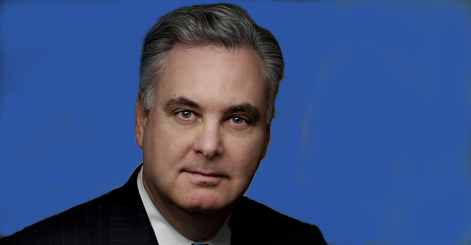For a lawyer at a small firm, Jeff Tillotson, name partner at 20-lawyer firm Lynn Tillotson Pinker & Cox in Dallas, has more than his fair share of marquee clients and high-profile cases.
In the last few years alone, he has handled cases for major financial institutions such as Bank One, JP Morgan Chase, Citi Financial, First USA, Citibank and Barclay. His most famous case to date is his successful defense of Visa USA and Visa International in a $700-million Internet defamation case. The 2002 jury trial was the first case to consider whether comments on message boards are considered free speech.
Considered one of Dallas’ most sought-after trial lawyers, Tillotson is currently representing Laura Pendergest-Holt, chief investment officer of alleged Ponzi schemer Allen Stanford, in both the civil and criminal cases.
Lawdragon: Tell us about your firm and what distinguishes it from other firms.
Jeff Tillotson: We are a small and deeply talented law firm that specializes in trial work. Clients come to us because they know (or sometimes fear) that their dispute will have to be resolved before a jury. They want a firm that is comfortable and experienced in a courtroom. We pride ourselves in being that firm. We try – and win – cases consistently. I try two to four cases a year. Everyone at my firm keeps up that same pace. It’s a great place to be.
LD: Can you talk about your most recent success in court?
JT: A trial in San Antonio, Texas, between two owners of a successful business. We represented the plaintiff and prevailed, obtaining a seven figure verdict and, more important to our client, control of the business. The key to the win was having a consistent theme that the jury could understand – the defendant cheated us and the business – and methodically proving it with documents. Jurors love documents. They really rely on them in deliberations.
LD: How did you end up becoming a lawyer?
JT: I was a really terrible little league baseball player. Once, when I was at bat, the pitch, while on the inside, touched only the end of my belt, which was sticking out slightly. The umpire yelled, “You have been hit, son, take your base!” But I protested: “It didn’t hit me; it hit my belt and that’s not me.” My coach, fearing this was my only chance to ever reach base, began yelling at me to “Take my base.” I stood my ground, “My belt is not ‘me.’”
My dad, sitting silently in the stands and watching the whole episode unfold, concluded that his 8-year-old son was likely going to be a lawyer and not a major league player. He later suggested I consider law school. I am glad I took his advice. Oh, I did take my base and was quickly thrown out foolishly trying to steal second.
LD: Who is the most influential person in shaping your career?
JT: My father. He challenged me to be a better person and then gave me the confidence to do it. He was a salesman all his life. He taught me more about persuading a jury than any law school teacher or CLE course.
LD: What is the most challenging part of your job?
JT: Two things. First, helping clients understand and accept the sometimes maddening process of litigation. Some clients don’t understand why the process moves so slowly. Others don’t like the jury system. No matter what the issue, the challenge is making sure that the client is comfortable with our country’s fantastic dispute resolution mechanism – also known as the jury trial. Second, once the client is comfortable with the jury system, you then have to make the jury comfortable with your client. Humanizing large companies or businesses is an art, not a science. But it is absolutely critical to persuading a jury.
LD: What is the most interesting or rewarding aspect of your job?
JT: There is no experience in the world quite like waiting for a jury to come back with a verdict. It’s pure agony. But, having a verdict read in open court and instantly realizing that the jury is validating your client’s case, and in the process, your hard work is the ultimate rush.
That said, my favorite part of the practice is the opening statement. You get to lay out your case for the jury in clear, concise but hopefully attention-grabbing language. Every detail is critical – it’s their first impression of you, your case and your client. The jurors are interested, open and even receptive. You don’t want to waste that attention, not even for a second. Your job is to begin the process of explaining your case. You want the jury thinking at the end: “Oh man, the other side better have a good explanation for all that.” Doing it right and sensing that the jury “is getting it” is truly gratifying.
LD: Do you have any tips to share with lawyers embarking in a litigation career?
JT: Yes. Don’t go into litigation unless you are sure you want to do trial work. That means courtroom stuff. If you don’t have a passion for it you won’t ever be happy as a litigator. Trials are the best part of the practice but they are not for everyone. Go watch some while in law school. See what it’s all about and then decide if it appeals to you.
LD: What do you do for fun?
JT: My wife loves watching movies. I love my wife. So, I now love to watch movies too.


